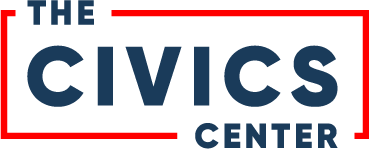Happy Belated Temperance and Good Citizenship Day!
Those of us lucky enough to have grown up watching Schoolhouse Rock! -- or to have nostalgic parents who shared the series with us -- will remember a sad little scrap of paper, Bill, and his long, long wait to become a law. In fact, the patience and courage shown by that winsome cartoon character is replicated in state houses across the country by real-life legislators working to promote the enfranchisement and engagement of young voters via pre-registration bills.
In Washington state, the long road toward establishing preregistration -- which will be available to all state 16- and 17-year-olds on July 1st this year -- was in large part paved by the tenacity of a social studies teacher-turned-legislator.
As a high school teacher leading a required senior year course on Contemporary World Issues in Renton, Washington, Steve Bergquist says, “civic engagement was always a goal”. Though his school didn’t require community service for graduation, Bergquist made sure his seniors engaged in civic learning projects, investing time and energy at the Seattle Children’s Hospital, local Ronald McDonald House, at a nearby food bank or in other meaningful community service. When Bergquist was elected as a representative from his district to the Washington State House of Representatives in 2012, he knew he had earned a more expansive opportunity to promote civic engagement. And in his words, “voting and civics go hand in hand”.
Among other legislative priorities, Bergquist turned his attention to introducing a motor voter preregistration bill that had been put forward by prior legislatures. In that era of split government in the state, pre-registration failed to pass the senate. Still, in that first year Bergquist was able to take another bill on student civic engagement to the finish line: requiring school districts to incentivize community service work, which led more school districts, including his own, to make community service a graduation requirement.
A veteran fellow legislator suggested Bergquist research old statutes on the books to see if there might be civic engagement laws being ignored. Sure enough, Bergquist discovered a long-forgotten prohibition-era law mandating that school superintendents annually recognize January 16th as “Temperance and Good Citizenship Day”, providing instruction on great and abstemious leaders. Bergquist was able to work into the following year’s budget bill a proviso ensuring that Temperance and Good Citizenship Day would be observed across Washington as an opportunity for eligible students to register to vote at their high schools.
After five years and several more failed attempts to pass pre-registration bills, all while Bergquist continued to teach high school social studies, he drafted and co-sponsored HB 1513 -- more evocatively known as the Future Voter bill. Finally, the legislation passed both the state house and senate and was signed into law by Governor Inslee.
Of course, the story doesn’t end there. While the legislation includes extensive provisions on its implementation, state administrators, school superintendents and faculty, county clerks and students themselves will need to rise to the occasion the new law offers for its potential to be realized. The Washington State Secretary of State’s office and the Office of Superintendent of Public Instruction (OSPI) have begun to meet those challenges by piloting an educational curriculum distributed on this year’s Temperance and Good Citizenship Day, ahead of the law taking effect this summer. Their offices are working with local nonprofits and community organizations like The Washington Bus and 4-H, planning social media and a raft of messaging to ensure that schools meet the requirements of the law and that students are able to take full advantage of this opportunity.
As a national nonprofit dedicated to improving youth voter registration and civic engagement, The Civics Center is grateful to public servants like Bergquist for their persistence in shepherding scrappy preregistration bills through the often grueling process of becoming law -- and to administrators like those at Washington S.o.S. and OSPI for the persevering work needed to fully implement those new laws. To be continued…
